Hello, my fellow Magic "junkies"!
Today we'll discuss one of Commander's downsides - playing when the number of participants is uneven, differing from the standard 4 player matches. Here are some variations that help with this issue and try to create some fair options:
3 players

Have you noticed how boring it is to play Commander with only 3 players? Unfortunately, it happens.
It's quite tedious because most matches end up in 2-vs.-1 scenarios. Wheter if someone is dominating the match and has more combo potential or simply because there's an overall better player in the group, it often ends like this.
• One solution to this may be as easy as flipping a coin: the result can decide which direction the players have to attack. For example, tails decide that everyone should attack in a clockwise motion. This direction can even be changed by some existing cards, such as Pramikon, Sky Rampart and Mystic Barrier.
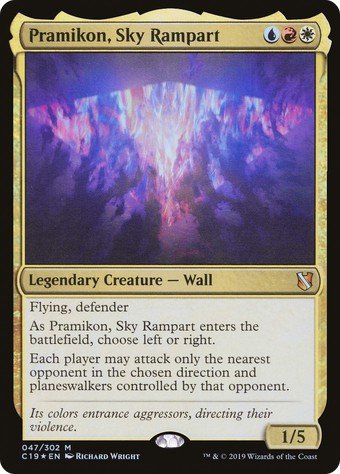
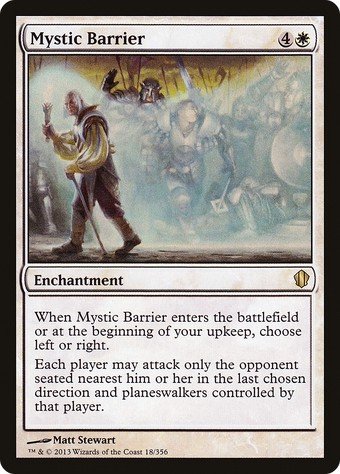
But keep in mind that these restrictions are exclusive to attacks. There is nothing stopping you from destroying, countering or interacting with the other player's spells and permanents.
The group should also decide beforehand if the game ends when your only target dies, or if the match goes on as a 1-vs.-1.
• Another solution is to play with totem. It's quite complex, so let me explain: There's a totem between each unique pair of players, so we have 3 totems in total.
Each totem has 40 life points, but the totem is linked to both players next to it. If that totem dies, so does both players linked to it.
This way, the match becomes three separate 2-vs.-1 scenarios. Any player can defend a totem they're linked to. Here's a mockup:
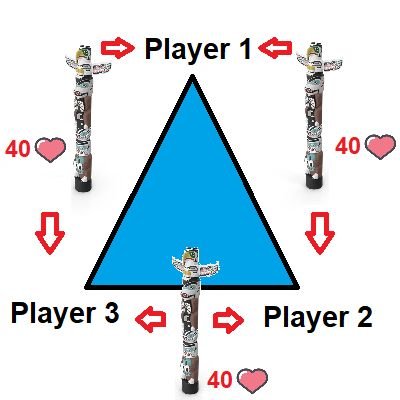
Sorry if it's still confusing, but here is a brief summary. Pay attention to the arrows, as they are the links between totem and player. Take the right totem as an example, if it dies, Player 3 wins, as it's only linked to Players 1 and 2.
Remaining interactions are all standard, such as countering, destroying, etc. If you must pay life points, you may choose which totem to target. Again, other rules may apply, as long as the players settle beforehand.
5 to 7 players
• Here's another variation: friend or foe. Adjacent players are your friends and opposite players are your foes. If there's anyone in-between, they're neutral.
The only restrictions here are that you can't attack or target your friends. However, this doesn't mean you can't interact with them at all (specially in a "win or lose" situation). You can still use removals, counters, give them life points, interrupt their combos, and so on...
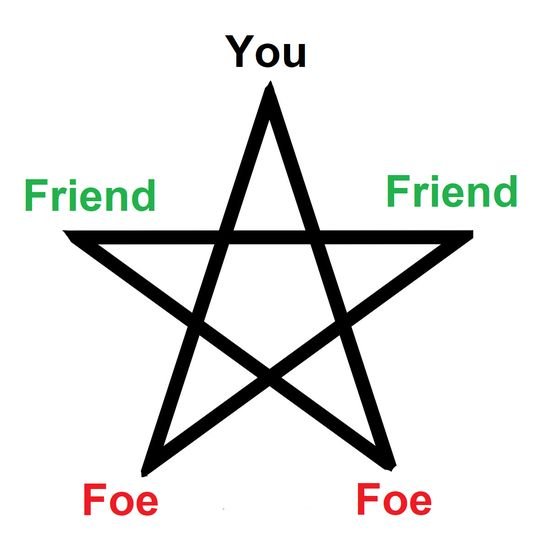
If a card makes you choose between friend or foe, nothing's changed. But cards that give you advantages based on the number of opponents are limited to only your "real" opponents - that is, friends and neutrals do not count.
One of the principles of this mode is that neutral players won't attack or be attacked by you, but may have common foes, depending on the number of players.
Your main goal in this variation is defeating your foes while you also don't let your adjacent friends win before you do. If you end up with a 2-vs.-1 scenario, the winner is the one who defeats his opponent first.
And as you can still interact with friends and neutrals, you can spoil their strategies, you can help your foes against them, among other mischiefs. The infamous fair-weather friend.
This variation is also inspired by the original color pie, where the opponents of each color are in front of their enemies and next to their allies. I don't know if this has been explored elsewhere, but it makes the game more interesting and faster.
(As a side-note, I also recommend the Emperor game mode for 6 players, but I won't be covering it in this article)
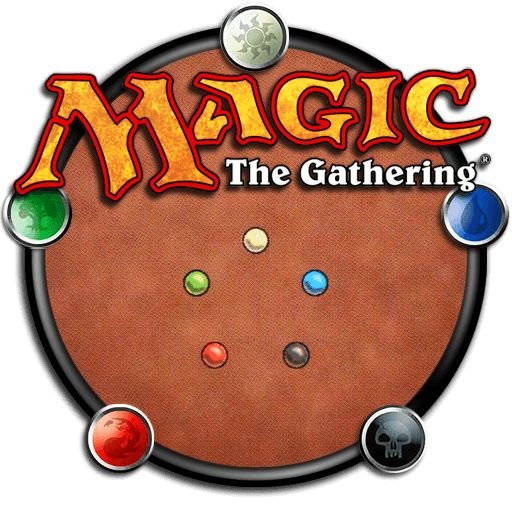
That's all for today, I hope you guys enjoyed these variations and tips.
Thank you for your time, and good games to everyone!













— Comments 0
, Reactions 1
Be the first to comment